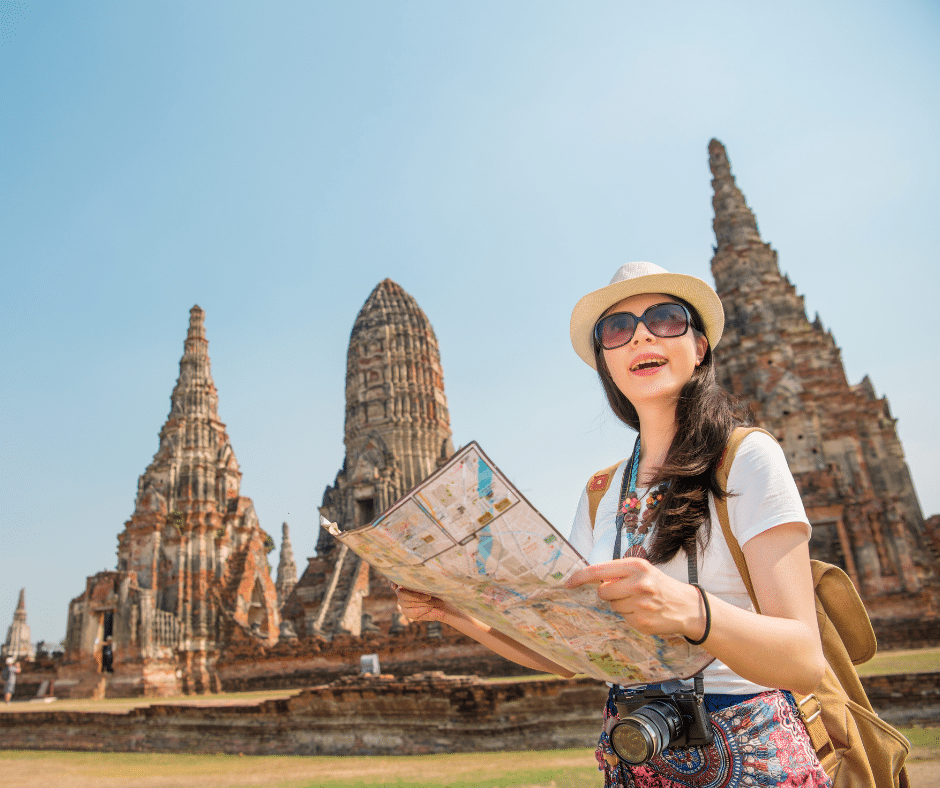Travel in 2025 is no longer solely about ticking destinations off a list. Modern travelers are seeking travel experiences that foster cultural awareness, aiming to connect deeply with local communities, traditions, and lifestyles. This shift reflects a desire for authenticity, meaningful engagement, and responsible tourism practices. People are increasingly aware that travel has the power to broaden perspectives, create empathy, and nurture a greater understanding of the world’s diverse cultures.
Whether through immersive cultural experiences, offbeat destinations, sustainable tourism, or digital detox retreats, travelers are seeking opportunities to engage thoughtfully and respectfully. Let’s explore the emerging trends that define travel experiences that foster cultural awareness in 2025.

The Growing Appeal of Offbeat Destinations
One of the clearest trends in 2025 is the shift away from crowded, mainstream tourist hotspots toward off-the-beaten-path destinations. Travelers are increasingly drawn to lesser-known locales where they can experience the essence of a culture without the distractions of mass tourism.
Why Travelers Choose Offbeat Locations
- Authenticity: Offbeat destinations offer a more authentic glimpse into local life, culture, and traditions. Small villages, rural towns, and uncharted regions allow travelers to engage directly with residents and gain firsthand knowledge of cultural practices.
- Sustainable Travel: By visiting destinations less frequented by tourists, travelers reduce overcrowding and help mitigate the environmental impact of tourism.
- Unique Experiences: Lesser-known destinations often provide exclusive experiences, such as learning traditional crafts, participating in cultural rituals, or attending regional festivals.
For example, Australian travelers in 2025 have shown a 40% increase in interest toward hidden gems in China and Japan, such as Zhangjiajie and Kanazawa. These places offer an immersive cultural experience with fewer crowds and a slower pace of life. Similarly, Gen Z travelers in India are increasingly choosing homestays, local cooking classes, and community-driven activities over conventional tourist destinations.
Immersive Cultural Experiences
In 2025, travelers are no longer satisfied with simply observing a culture; they want to participate in it. Immersive experiences allow travelers to engage actively with local traditions, learn skills, and understand cultural narratives.
Examples of Immersive Travel Experiences
- Culinary Exploration: Food is a gateway to understanding culture. Participating in cooking classes, market tours, and local dining experiences allows travelers to appreciate the role of cuisine in cultural identity. Programs like Silversea Cruises’ SALT (Sea and Land Taste) feature local chefs and ingredients, offering an authentic taste of regional traditions.
- Hands-On Workshops: Crafting, weaving, pottery, and traditional music workshops provide travelers with the opportunity to acquire skills while learning about the cultural significance of these art forms.
- Local Festivals and Rituals: Participating in cultural events and ceremonies fosters respect and understanding for traditions that might be unfamiliar but deeply meaningful to the local population.
Immersive experiences also encourage travelers to reflect on their own cultural assumptions and biases, ultimately contributing to personal growth and greater empathy.
Sustainable and Responsible Travel
Sustainability has moved from a niche concern to a mainstream consideration. Travelers now prioritize experiences that respect both the environment and the cultures they visit. Sustainable travel practices contribute to cultural preservation and help local communities thrive.
Key Practices in Responsible Travel
- Supporting Local Economies: Choosing locally owned accommodations, dining at family-run restaurants, and purchasing handmade goods helps strengthen communities and preserve traditional skills.
- Environmental Awareness: Minimizing waste, using eco-friendly transportation, and selecting destinations that implement conservation practices are essential components of responsible travel.
- Cultural Sensitivity: Understanding local norms, customs, and etiquette ensures respectful interactions and avoids unintentionally offensive behavior.
For example, agritourism and rural tourism have seen a surge in popularity. Travelers can participate in traditional farming practices, harvest local produce, and learn about the historical and cultural context of agriculture in a region. These experiences not only provide education but also help preserve local customs and knowledge.
Digital Detox and Cultural Reconnection
While technology enables global connectivity, it also creates distractions that can limit cultural engagement. Digital detox retreats are emerging as an essential component of travel experiences that foster cultural awareness. These retreats encourage travelers to unplug from screens and engage with the physical and cultural environment around them.
Features of Cultural Digital Detox Retreats
- Off-Grid Accommodations: Lodging in nature-rich settings without constant internet access encourages mindfulness and active participation in cultural activities.
- Workshops and Activities: Cooking, traditional crafts, storytelling sessions, and guided tours create meaningful interaction with the local culture.
- Mindful Tourism: Guests are encouraged to slow down, observe, and engage deeply with their surroundings, cultivating respect and appreciation for local traditions.
Destinations like Fernwood Farm in western Ireland and Susafa in Sicily provide opportunities to disconnect digitally while immersing oneself in rural life and cultural practices.
The Role of Technology in Promoting Cultural Awareness
While digital detox emphasizes unplugging, technology can also enhance cultural understanding when used thoughtfully. Innovative tools such as virtual reality (VR), augmented reality (AR), and digital storytelling platforms enable travelers to experience distant cultures from their homes or enhance onsite exploration.
Examples of Technology-Enhanced Cultural Awareness
- VR Cultural Tours: Travelers can virtually visit historical sites, attend traditional ceremonies, and interact with cultural narratives before or after their physical visit.
- AR Guides: Augmented reality apps can provide contextual information about landmarks, museums, or public spaces, enriching understanding of cultural heritage.
- Social Media Inspiration: Travelers sharing experiences responsibly can inspire others to explore new destinations and cultures, promoting cross-cultural learning on a global scale.
The key is balance: integrating technology to enhance understanding while also committing to authentic, immersive experiences.
The Psychological Benefits of Cultural Travel
Engaging in travel experiences that foster cultural awareness does more than expand knowledge—it promotes mental and emotional well-being. Research indicates that immersive cultural travel can:
- Reduce stress and anxiety by encouraging mindfulness and present-moment awareness.
- Enhance creativity by exposing individuals to new perspectives, practices, and problem-solving approaches.
- Improve empathy and social intelligence through firsthand interactions with diverse communities.
- Strengthen personal resilience by navigating unfamiliar environments and adapting to new cultural contexts.
Travelers often report that immersive cultural experiences leave a lasting impact, influencing their worldview, lifestyle choices, and social values long after the trip ends.
Preparing for Meaningful Cultural Travel
To maximize the benefits of cultural travel, preparation is essential. Travelers can adopt several strategies to ensure that their experiences are authentic, respectful, and impactful:
- Research in Advance: Learn about local customs, social norms, and cultural history. This preparation helps avoid misunderstandings and fosters respectful engagement.
- Engage Locals: Seek guidance from community members, local guides, or cultural organizations to gain deeper insight into traditions and practices.
- Embrace Slow Travel: Spend more time in a single location to develop genuine connections and avoid superficial tourism.
- Document Respectfully: Capture experiences responsibly through photos and journals, ensuring that local people are comfortable with being recorded or photographed.
These steps help ensure that travel experiences remain ethical and culturally sensitive while fostering meaningful learning opportunities.
Conclusion
The travel trends of 2025 reflect a shift toward experiences that are immersive, responsible, and culturally enriching. By prioritizing offbeat destinations, engaging in hands-on cultural activities, embracing sustainable practices, and incorporating mindful digital use, travelers can cultivate travel experiences that foster cultural awareness.
Such experiences do more than enrich personal knowledge—they contribute to cross-cultural understanding, empathy, and global connectedness. As travelers, we have the responsibility to approach each destination with respect and curiosity, ensuring that our journeys benefit both ourselves and the communities we visit. Travel, when done thoughtfully, can be a powerful tool for promoting cultural awareness, bridging differences, and creating a more inclusive and understanding world.
By embracing these emerging trends, travelers in 2025 are redefining what it means to truly experience the world—moving beyond passive observation to active participation, reflection, and connection.
References
- News.com.au. (2025, January 10). Aussies venture beyond the hotspots in 2025 to hidden gems in China and Japan. Available at: https://www.news.com.au (Accessed: 18 August 2025).
- Times of India. (2025, March 5). 5 reasons why most Gen Z travellers in India are opting for offbeat getaways. Available at: https://timesofindia.indiatimes.com (Accessed: 18 August 2025).
- CN Traveler. (2025, April 12). These cruise ships are bringing the destination on board. Available at: https://www.cntraveler.com (Accessed: 18 August 2025).









